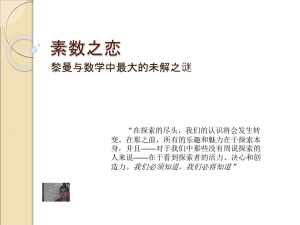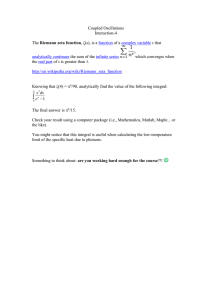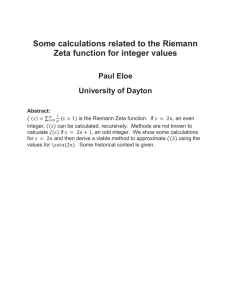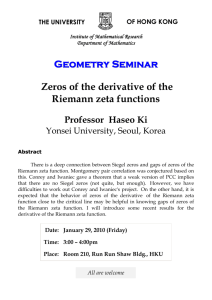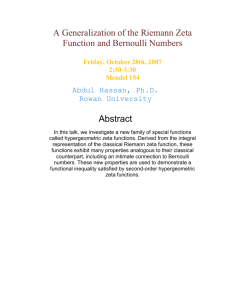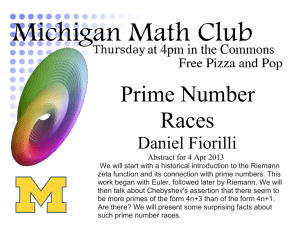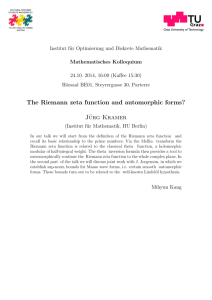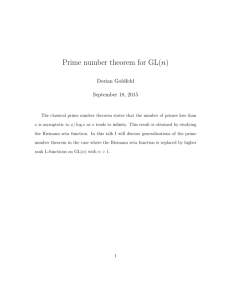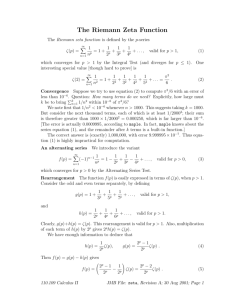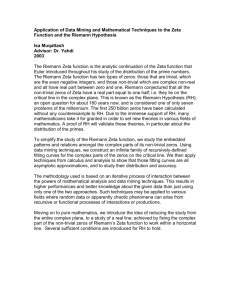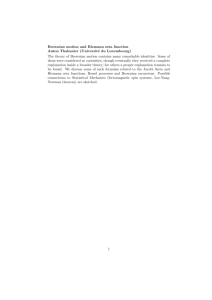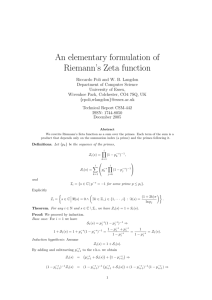SHINYA KOYAMA, Zeta Institute The double Riemann zeta function
advertisement
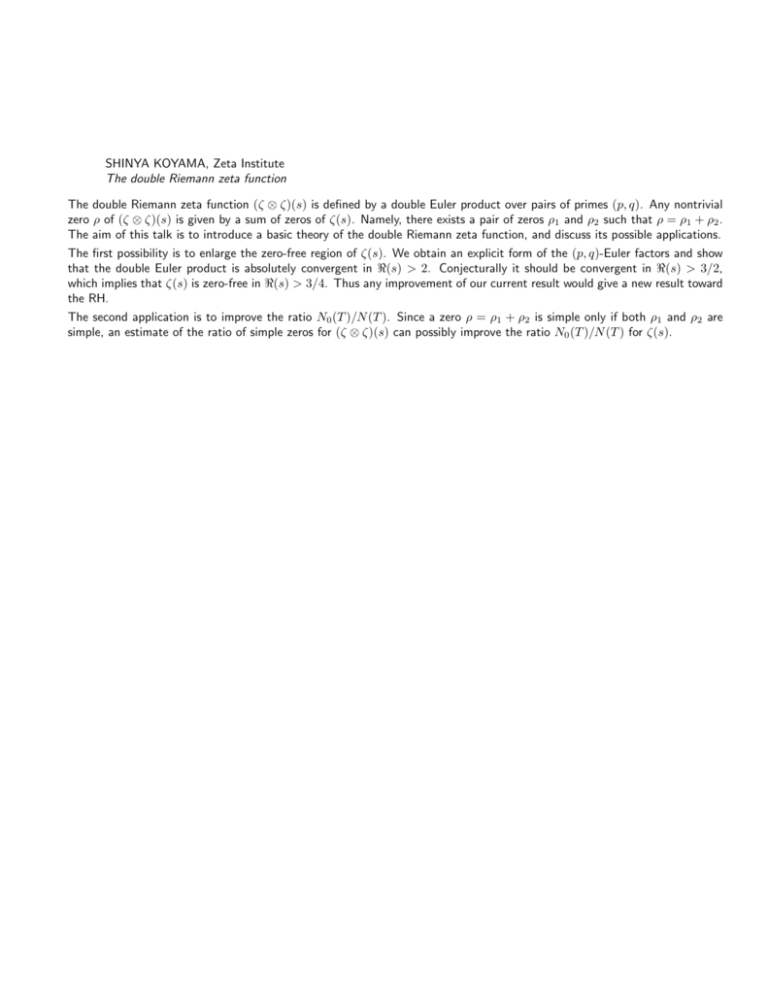
SHINYA KOYAMA, Zeta Institute The double Riemann zeta function The double Riemann zeta function (ζ ⊗ ζ)(s) is defined by a double Euler product over pairs of primes (p, q). Any nontrivial zero ρ of (ζ ⊗ ζ)(s) is given by a sum of zeros of ζ(s). Namely, there exists a pair of zeros ρ1 and ρ2 such that ρ = ρ1 + ρ2 . The aim of this talk is to introduce a basic theory of the double Riemann zeta function, and discuss its possible applications. The first possibility is to enlarge the zero-free region of ζ(s). We obtain an explicit form of the (p, q)-Euler factors and show that the double Euler product is absolutely convergent in <(s) > 2. Conjecturally it should be convergent in <(s) > 3/2, which implies that ζ(s) is zero-free in <(s) > 3/4. Thus any improvement of our current result would give a new result toward the RH. The second application is to improve the ratio N0 (T )/N (T ). Since a zero ρ = ρ1 + ρ2 is simple only if both ρ1 and ρ2 are simple, an estimate of the ratio of simple zeros for (ζ ⊗ ζ)(s) can possibly improve the ratio N0 (T )/N (T ) for ζ(s).
